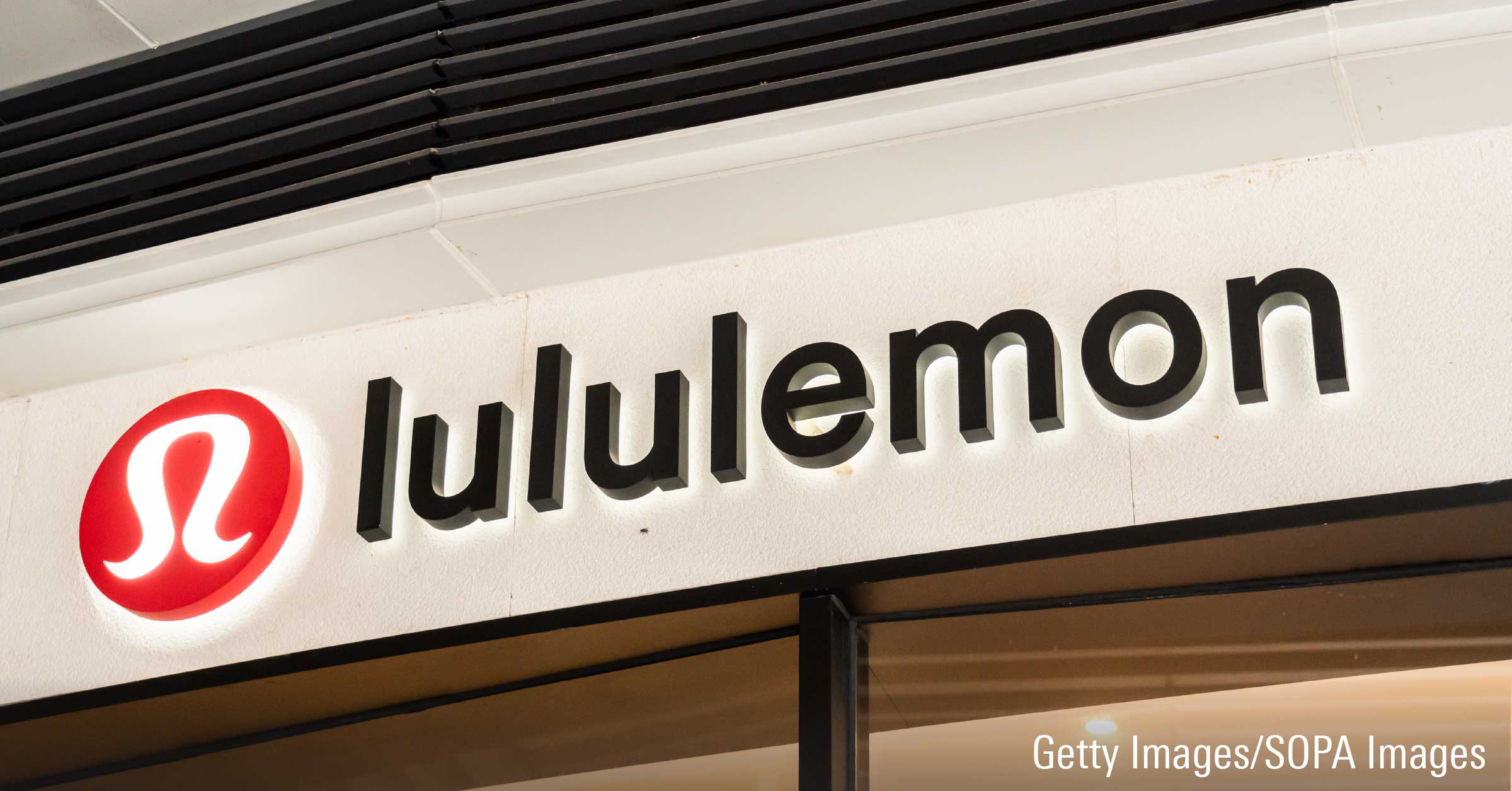After Earnings, Is Lululemon Stock a Buy, a Sell, or Fairly Valued?
With flat Americas sales and strong growth in China, here’s our take on Lululemon’s stock.

Lululemon Athletica LULU released its first-quarter earnings report on June 6. Here’s Morningstar’s take on Lululemon’s earnings and stock.
Key Morningstar Metrics for Lululemon Athletica
- Fair Value Estimate: $285.00
- Morningstar Rating: 3 stars
- Morningstar Economic Moat Rating: Narrow
- Morningstar Uncertainty Rating: High
What We Thought of Lululemon Athletica’s Q1 Earnings
- Lululemon’s comparable sales in the Americas were flat—a slowdown after years of great results. There were some issues with product shortages in the quarter.
- Even with the Americas result, 10% sales growth met our forecast, as sales in mainland China rose 45% on store openings and 26% comparable sales growth.
- Operating margin of 19.6% was better than our forecast of 18.8% but down from 20.1% in the prior year. Lululemon continues to generate high profit margins.
- We expect to raise our fair value estimate of $285 per share by a few dollars, leaving it slightly overvalued. Lululemon is trading at lower multiples on earnings than has been typical over the past dozen or so years.
Lulu Stock Price
Fair Value Estimate for Lululemon Athletica
With its 3-star rating, we believe Lululemon’s stock is fairly valued compared to our long-term fair value estimate of $285 per share. The company reported $5.29 in EPS, beating our forecast by $0.30. On the downside, it issued disappointing 2024 sales growth guidance of 11%-12% and acknowledged that sales have slowed in the US in the first quarter. Consequently, we have lowered our sales growth forecast for the year to 12% from 14%. Even so, we anticipate adjusted EPS will rise to $14.30 from $12.77 in 2023. Our forecast implies 2024 adjusted price/earnings of 20 and enterprise value/adjusted EBITDA of about 11.
Lulu Stock vs. Morningstar Fair Value Estimate
Read more about Lululemon’s fair value estimate.
Economic Moat Rating
We assign Lululemon a narrow moat based on its intangible brand asset. The company is often credited as the creator of the athleisure apparel trend, and it has become one of the largest activewear firms in the United States and Canada. Despite significant competition, Lululemon has experienced double-digit sales growth every year since 2003, and its revenue increased an astounding 23,000% to $9.6 billion in 2023 from $41 million in 2004.
Read more about Lululemon’s economic moat.
Financial Strength
We think Lululemon is in exceptional financial shape. It is a rare apparel firm that developed a multi-billion-dollar brand and store network without long-term debt. The company closed 2023 with $2.2 billion in cash and just under $400 million available on its revolving credit facility.
Read more about Lululemon’s financial strength.
Risk and Uncertainty
We assign a High Uncertainty Rating to Lululemon. Like many others, the firm has faced supply issues and elevated inventories in recent quarters. It also faces the risk of reduced consumer spending on apparel due to widespread inflation. However, it has handled these challenges better than most competitors.
Read more about Lululemon’s risk and uncertainty.
LULU Bulls Say
- Lululemon’s digital sales increased to about $5 billion in 2023 from less than $100 million in 2010, but its stores have remained very productive. Its sales per square foot of about $1,600 are extremely high.
- Lululemon has a big opportunity in mainland China, which accounted for just 10% of its 2023 sales. China is already the second-largest sportswear market in the world.
- Lululemon is often credited with the development of athleisure, which we believe is a major change in how people dress and has increasingly broad appeal.
LULU Bears Say
- Leggings and other key Lululemon items are offered by everyone from low-priced fast fashion to luxury apparel brands. The competitiveness of the sportswear industry continues to rise.
- As Lululemon expands beyond yoga into categories like running and training and offers footwear, it competes directly with established athletic apparel firms like Nike.
- Lululemon is expanding aggressively in countries where awareness of its brand is relatively low. It may not have as much success in these regions as in North America.
This article was compiled by Krutang Desai.
The author or authors do not own shares in any securities mentioned in this article. Find out about Morningstar’s editorial policies.

/s3.amazonaws.com/arc-authors/morningstar/35cad34a-5a55-4541-88e4-5464951e9ae1.jpg)
/cloudfront-us-east-1.images.arcpublishing.com/morningstar/UUSODIGU4REULCOR35PTDS7HW4.jpg)
/cloudfront-us-east-1.images.arcpublishing.com/morningstar/5FJIYHKNZRBM3LAKQL2QEUMDTA.png)
/cloudfront-us-east-1.images.arcpublishing.com/morningstar/5WSHPTEQ6BADZPVPXVVDYIKL5M.png)
:quality(80)/s3.amazonaws.com/arc-authors/morningstar/35cad34a-5a55-4541-88e4-5464951e9ae1.jpg)